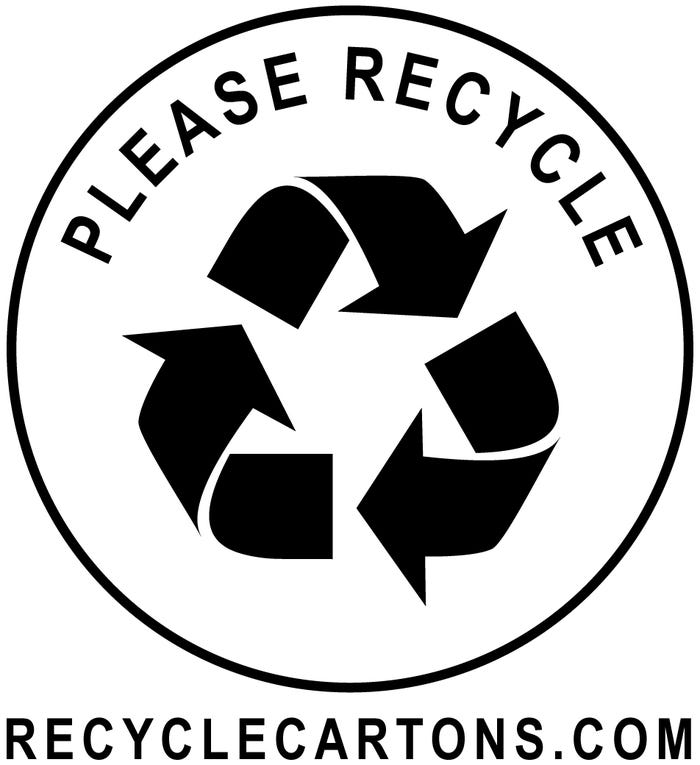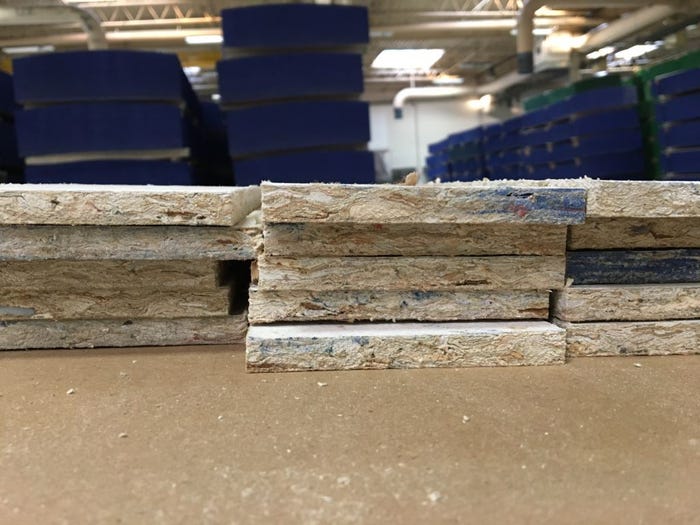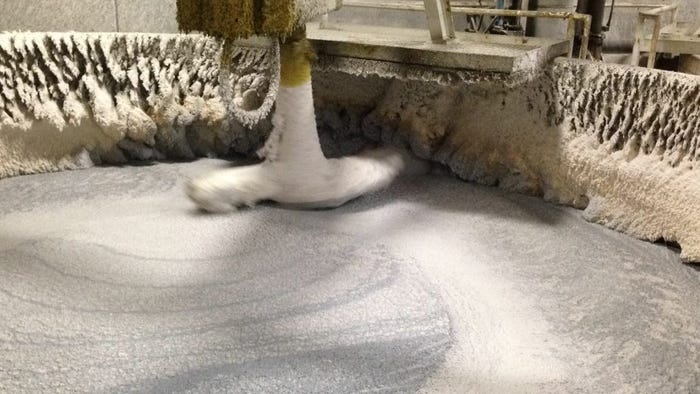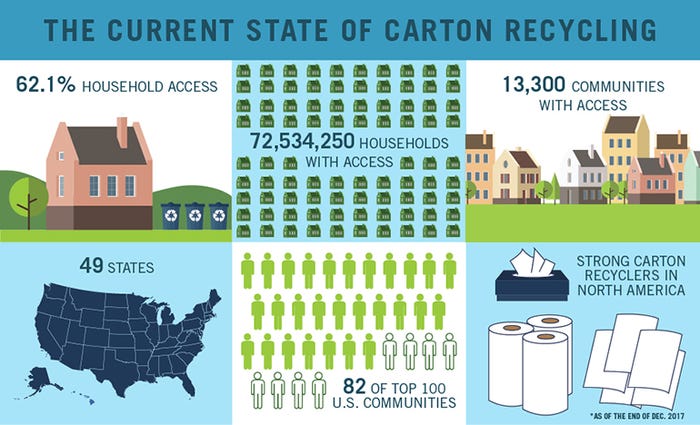End Market Options for Cartons are Expanding
While many commodities are in danger of being landfilled due to China’s waste import ban, opportunities for food and beverage cartons are growing.

Many recyclers are struggling with how to adjust to China’s waste import ban and contamination standard, as many commodities are in danger of being landfilled due to a lack of end markets. But for food and beverage cartons, end market options are growing along with opportunities for recycling.
Since its inception in 2009, the Carton Council of North America has encouraged owners of materials recycling facilities (MRFs) to separate cartons into Grade #52. Because of this effort, China has never been a market for post-consumer carton loads coming from the U.S., making cartons a valuable commodity with a growing number of end markets.
“When we set out to create the Carton Council, we had a vision to keep cartons out of the landfill, and we did that by looking strategically at end markets,” says Derric Brown, vice president of sustainability at the Carton Council of North America. “We began working with communities across the country to help them add the equipment they need to sort cartons into Grade #52, and then moved on to expand our communication by working with communities to get the word out about recycling cartons and working with brands to add the recycling logo on their cartons. The logo is helpful because consumers often look to packaging first to see if an item is recyclable.”

When the Carton Council was formed, there was a limited number of domestic end market options in the U.S.—there was only one facility. But today, there are several facilities that accept cartons and process them into pulp for different types of paper products or tissue. ReWall in Des Moines, Iowa, for example, makes green building products out of food and beverage cartons. ReWall can accept up to 600 tons per month of Grade #52, so it’s a very effective and efficient user of cartons, comments Brown.

The number of facilities accepting cartons for recycling is also growing.
The Kent County, Mich., Recycling and Education Center recently underwent a $1.5 million equipment upgrade to improve its recycling efficiency and to add dairy cartons and juice boxes to its list of accepted materials. The equipment added to the facility by CP Group includes a new corrugated cardboard screen, additional optical sorting equipment and conveyor system refurbishment. These upgrades allow the facility to accept paper cartons and mechanically sort corrugated cardboard to keep up with the community’s growing recycling needs.
“Prior to having this equipment at our facility, paper cartons were not recycled because they’re a mixed material,” says Kristen Wieland, communications and marketing manager at the Kent County Department of Public Works. “They are coated in plastic and sometimes also have a metal layer. These layers make them great for storing food and beverages but make them challenging to recycle. Just think about the volume of juice boxes and milk cartons that come from school cafeterias that can be recycled now!”
In late 2018/early 2019, Ecomelida, Inc., a subsidiary of Zhangzhou Sanlida Environmental Technology Corporation, will open its first North American facility in Orangeburg County, S.C., which will have an initial capacity of 10,000 tons a month of post-consumer cartons, according to Brown. With this facility, the company will expand its creative processes to separate pulp, plastic and aluminum from soft drink cartons and other products.
“As more companies build facilities to recycle cartons or expand upon their current systems, I would encourage them to reach out to the Carton Council so that we can share our expertise and experiences with them,” says Brown. “We want to continue to make and recycle cartons because we think cartons are great sustainable packages, and it’s our mission to make sure there are sustainable recycling options available for these materials. We can help with selecting equipment and with communicating to consumers and community members about how to properly recycle cartons. We can also help demonstrate to brokers and other purchasing agents that there are stable end markets for cartons.”

The Carton Council has worked with various partners over the years to integrate smart technology into facilities to easily recycle cartons. Through a collaboration led by the Carton Council with two Denver-based companies, AMP Robotics and Alpine Waste & Recycling, a robotic system has learned to identify the wide variety of food and beverage cartons in order to grab and separate them from the recycling stream. The AMP Cortex, nicknamed “Clarke” after the sci-fi author and futurist Sir Arthur Charles Clarke, has spider-like arms with specially designed grippers to pick up and separate cartons at a MRF. Clarke was installed in late 2016 and, through fine-tuning and adjustments, has achieved a pickup rate of 60 cartons per minute. This is a considerable increase from the human average of 40 picks per minute.
“Clarke provides a new and exciting approach to sorting recyclables. Currently, there is nothing out there that does what this system does,” said Matanya Horowitz, founder of AMP Robotics, in a statement. “Clarke can be a cost-effective way for facilities to introduce new packaging that does not always have a large volume. Additionally, unique grippers can be developed to identify and pick contaminants, which is one of the biggest issues our industry currently faces.”
In late 2017, a second AMP Cortex robot was installed at Dem-Con Companies’ Minnesota facility.
“We are constantly looking at innovative ways to maximize recycling, and the AMP Cortex is a perfect example,’’ said Bill Keegan, president of Dem-Con Companies, in a statement. “We were already recycling cartons recognizing their value; however, our method wasn’t as efficient as it could be. This system will assure we are sorting every carton.”
As more and more facilities begin to accept cartons for recycling, carton recycling becomes more accessible for U.S. residents.
Earlier this year, the Carton Council shared that 62 percent of households in the U.S. can now recycle food and beverage cartons through curbside and drop-off programs. This is an increase from approximately 18 percent in 2009.

“Last year built upon nearly a decade of significant growth in carton recycling,” said Jason Pelz, vice president of recycling projects for the Carton Council of North America, in a statement. “Not only did we continue to hit new milestones in household access, but this progress spurred increased consumer awareness, new industry collaborations and innovative technology and end market solutions to increase carton recycling efficiency.”
Currently, 13,300 different communities across 49 states have access to carton recycling, and 82 of the 100 largest cities in the country have carton recycling available.
“We’ve worked really hard at the Carton Council to make recycling of cartons an easy process,” says Brown. “We work well with a network of brokers and understand the supply chain pretty well, so we’re able to help introduce MRFs to the broker supply chain and purchasing agents to ensure stable end markets. There are significant market dynamics with moving mixed paper and other types of paper, and we can help identify how those dynamics interact with cartons. We hope to continue to expand end market solutions and to work toward technological advancements that will make carton recycling more efficient as we progress further into 2018.”
About the Author
You May Also Like




